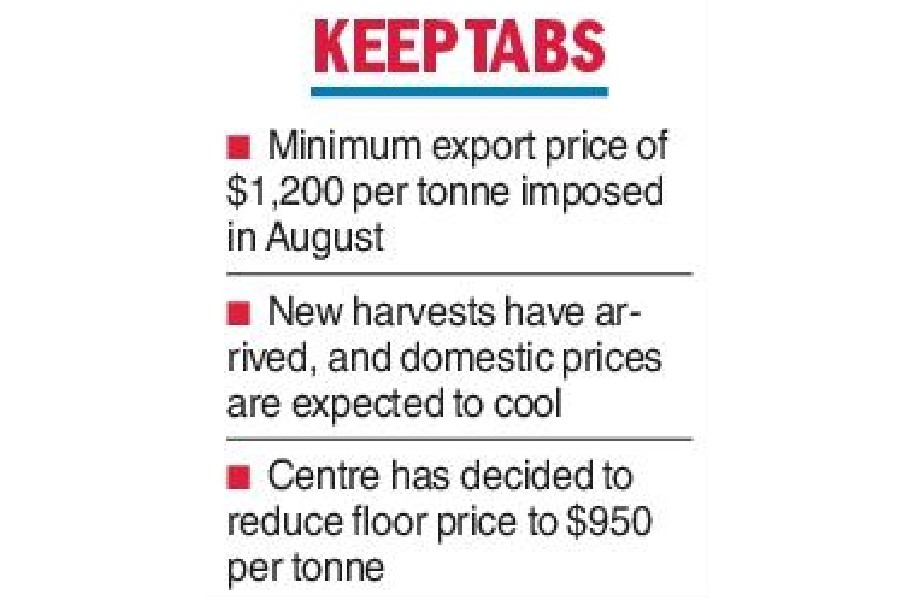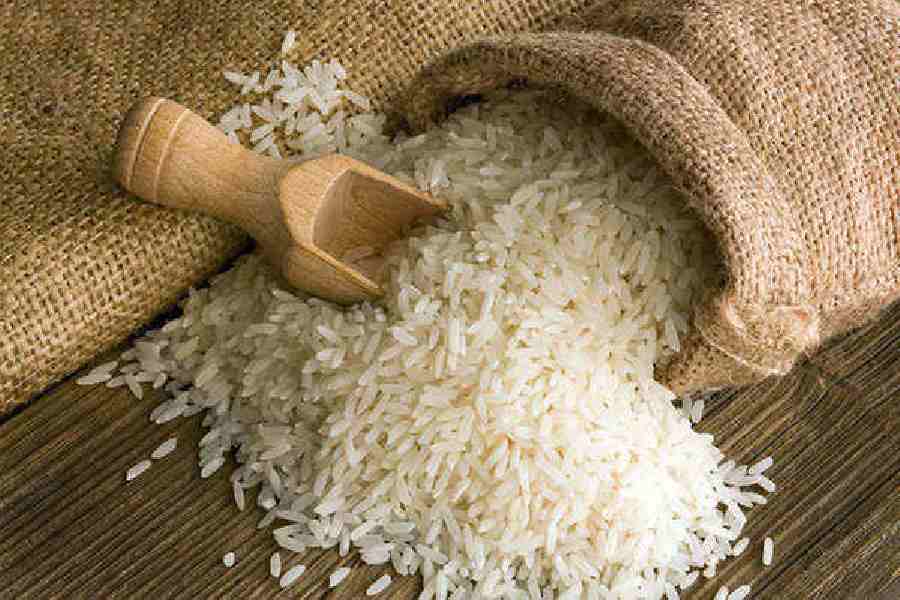The government is expected to come out with a formal notification to reduce the minimum export price of Basmati rice to $950 a tonne, as the present MEP levels are impacting shipments.
The government had imposed a floor price of $1200 a tonne for overseas shipments in August to cool domestic prices.
The Union government has decided to cut the minimum export price (MEP) it had set for basmati rice following complaints by traders that overseas shipments had become unviable.

The government, which imposed a floor price of $1200 a tonne for overseas shipments in August to cool domestic prices, has approved a decision to reduce it to $950 a tonne in a meeting late on Monday evening, sources said. The decision, however, is yet to be notified.
Food minister Piyush Goyal, who held consultations with traders, had assured industry representatives that the government would review the MEP.
The MEP is a price threshold below which exporters cannot sell to global buyers. It is imposed to limit exports. India, the world’s biggest rice exporter, has banned overseas sales of white non-basmati rice and wheat to put a lid on local prices.
The MEP was expected to be cut with the arrival of the new season harvests, but the government said on October 14 that it would maintain it until further notice, angering farmers and exporters who said the new crop had led to a drop in domestic prices.
Authorities later said they were actively reviewing the MEP.
Currently, basmati varieties such as 1121 and 1509 varieties are arriving in the market. The Pusa basmati will hit the market soon, while pure basmati will likely arrive in December.
India is a leading exporter of premium aromatic grain, shipping over 4 million tonne a year, especially to the West Asian countries.











